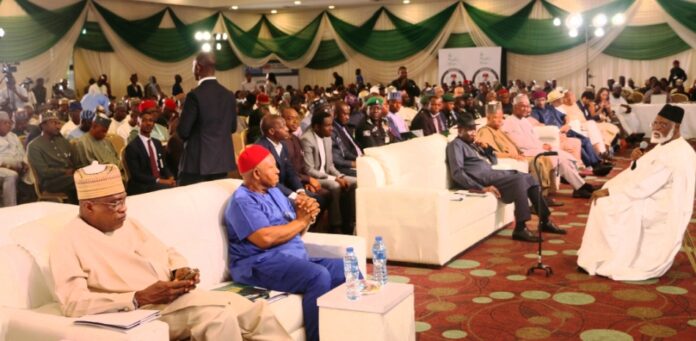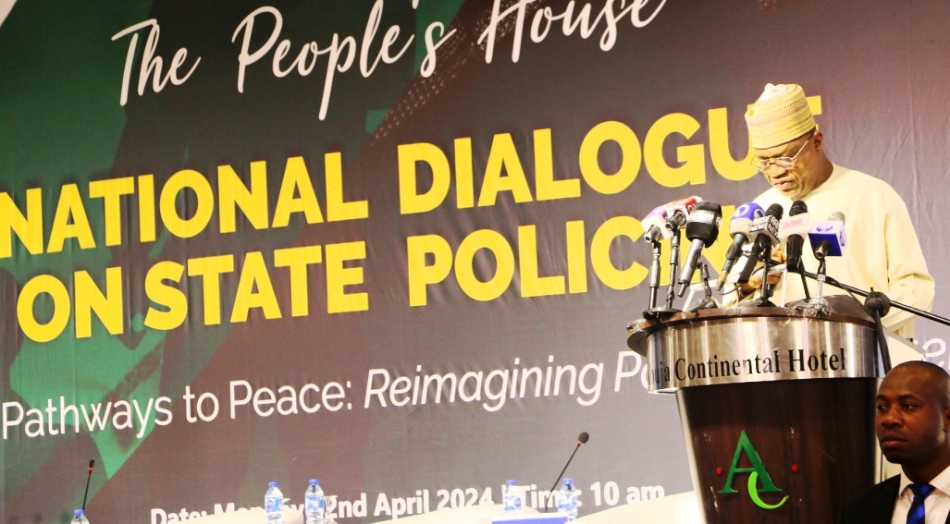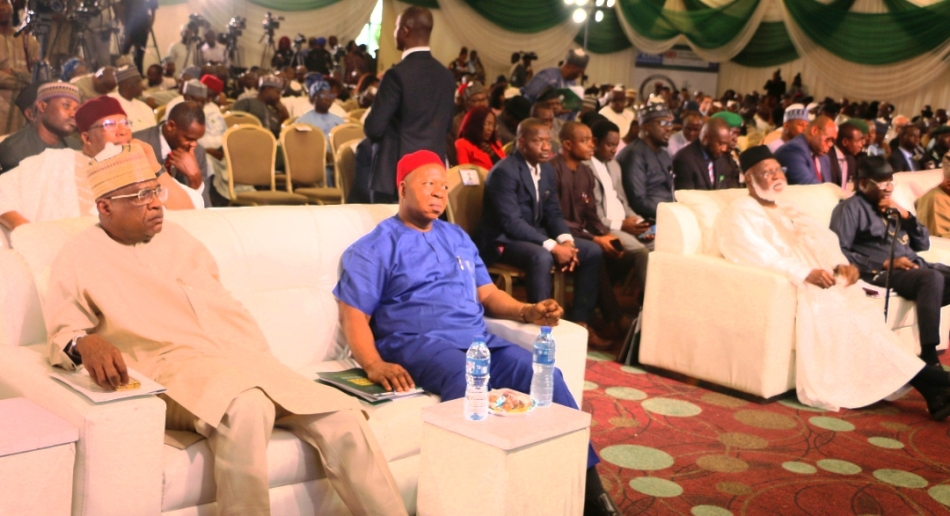
The Honourable Minister of Police Affairs, Senator Ibrahim Gaidam has highlighted the merits of implementing state police to enhance local responsiveness, improve crime prevention, and strengthen security at the grassroots level.
He stated this during his goodwill message at the National Dialogue on State Policing with a theme: Pathways to Peace: Reimaging Policing in Nigeria held at the Abuja Intercontinental Hotel (Formerly Sheraton Hotel & Towers), Abuja.
The Minister proposed a model for implementing state policing in Nigeria, suggesting a decentralized structure where each state manages its police force under a framework that ensures cooperation and coordination with federal agencies.
According to him, “This model would involve recruiting, training, and equipping state police officers to meet professional standards while ensuring accountability and oversight mechanisms are in place”.
In addition, Gaidam recommended an institutional and legal framework that delineates the roles, responsibilities, and jurisdiction of state police forces within the broader national security architecture. “This framework should include mechanisms for information sharing, collaboration, and coordination between state and federal agencies to address cross-border and transnational security challenges effectively”. The Minister stressed.
He reiterated the need for a comprehensive national dialogue involving stakeholders at all levels to deliberate on implementing state police in Nigeria, taking into account the unique challenges and opportunities present in the country’s diverse socio-political landscape.
In his words, “This dialogue should aim to build consensus on the way forward and develop a roadmap for the phased implementation of state policing, ensuring that it contributes to enhancing security, upholding the rule of law, and protecting the rights of all citizens across the nation”.


Gaidam noted that the recent spate of kidnappings, banditry, activities of terrorists, and communal clashes have cast a dark shadow over our country, causing fear, pain, and uncertainty among our people.
He added that the issues not only threaten lives but also have severe repercussions on our economy, social cohesion, and overall development. “We must come together to address this critical issue and work towards finding sustainable solutions that will ensure the safety and security of all Nigerians”. The Minister reiterated.
Gaidam however acknowledged that the state police force is not without its challenges and one potential disadvantage is the risk of political interference and abuse of power at the state level. Without proper checks and balances, state police forces could be manipulated for political gain or to suppress dissent, leading to a deterioration of the rule of law and human rights abuses.
In his contribution, the Inspector General of Police, IGP Kayode Adeolu Egbetokun represented by the AIG Ben Okolo stated the challenges militating against the police performance namely inadequate manpower; inadequate operational equipment -arms and ammunition, communication equipment, drones, armored vehicles, and inadequate training as well as office and accommodation.
The former President of Nigeria, Dr. Goodluck Ebele Jonathan in his special remarks stated that we do not need to debate about the creation of the state police as the issue has been concluded and what we need to discuss is its operation in the country.
In his words, there is no way we can manage internal security if the state government cannot have state police and the issue is how it operates within the national security architecture. We should concentrate on how it would not be abused by state actors and police must not be used for the advantage of sitting governors and the use of police for elections has to be reviewed”.
Bolaji O. Kazeem
Deputy Director (Information and Public Relations)




